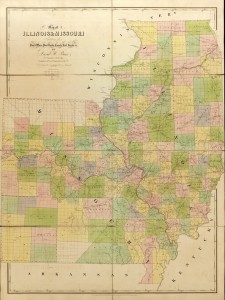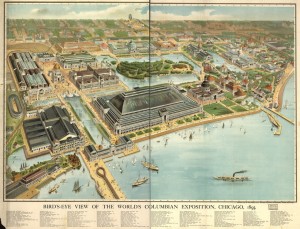The World Digital Library (WDL) is a project of the U.S. Library of Congress, carried out with the support of the United Nations Educational, Cultural and Scientific Organization (UNESCO), and in cooperation with libraries, archives, museums, educational institutions, and international organizations from around the world.
The WDL makes available on the Internet, free of charge and in multilingual format, significant primary materials from all countries and cultures.
The principal objectives of the WDL are to:
- Promote international and intercultural understanding;
- Expand the volume and variety of cultural content on the Internet;
- Provide resources for educators, scholars, and general audiences;
- Build capacity in partner institutions to narrow the digital divide within and between countries.
The WDL makes it possible to discover, study, and enjoy cultural treasures and significant historical documents on one site, in a variety of ways. Content on the WDL includes books, manuscripts, maps, newspapers, journals, prints and photographs, sound recordings, and films.
WDL items can be browsed by place, time, topic, type of item, language, and contributing institution. The search feature can be used to search all of the metadata and descriptions and the full text of printed books on the site.
Each item on the WDL is accompanied by an item-level description that explains its significance and historical context. Additional information about selected items is provided by curator videos. Other features include advanced image-viewing, timelines, interactive maps, and in-depth thematic sections on selected topics (in preparation).
All navigation tools, bibliographic information (also known as metadata), and content descriptions are provided in seven languages: Arabic, Chinese, English, French, Portuguese, Russian, and Spanish. Metadata and descriptions can be listened to on a text-to-voice conversion option that is available for every item in all seven interface languages.
Content on the WDL is selected by partner institutions in accordance with guidelines set by the WDL Content Selection Committee. Content is chosen for its cultural and historical importance, with due regard to recognition of the achievements of all countries and cultures over a wide range of time periods.
Books, manuscripts, maps, and other primary materials on the site are not translated but presented in their original languages. More than 100 languages are represented on the WDL, including many lesser known and endangered languages.
Partners
Partners are mainly libraries, archives, museums, or other institutions with collections of cultural content that they contribute to the WDL. Partners also may include institutions, foundations, and private companies that contribute to the project in other ways, for example by sharing technology, convening or co-sponsoring meetings, or contributing financially.
See a current list of all partners.
Organization, Governance, and Financial Support
The WDL is an international collaboration, led by the Library of Congress, with the support of UNESCO.
The WDL Charter, adopted in 2010, designates the Library of Congress as the Project Manager, and provides for an annual partner meeting and an Executive Council elected by the partners. Under the terms of the WDL Charter, the Executive Council provides leadership and direction to the WDL. The Executive Council is chaired by Dr. Ismail Serageldin, Director, Bibliotheca Alexandrina, Egypt, and includes members from Brazil, China, Germany, Qatar, the United States, and UNESCO. The WDL Director at the Library of Congress is Dr. John Van Oudenaren.
in 2010, designates the Library of Congress as the Project Manager, and provides for an annual partner meeting and an Executive Council elected by the partners. Under the terms of the WDL Charter, the Executive Council provides leadership and direction to the WDL. The Executive Council is chaired by Dr. Ismail Serageldin, Director, Bibliotheca Alexandrina, Egypt, and includes members from Brazil, China, Germany, Qatar, the United States, and UNESCO. The WDL Director at the Library of Congress is Dr. John Van Oudenaren.
To carry out its responsibilities as Project Manager, and in particular to maintain the WDL website, the Library of Congress depends upon contributions from foundations, companies, and private individuals.
Digitization Centers
While many of the partners or prospective partners that wish to contribute content to the WDL have well-established digitization programs with dedicated staff and equipment, others, particularly in the developing world, do not have access to these capabilities. Over the years, the Library of Congress has provided partners in Brazil, Russia, Egypt, Iraq, and Uganda with equipment, software, training, and financial support to establish digital conversion centers to produce high-quality digital images. Much of the content on the WDL was digitized at these centers. The WDL currently supports and receives content from three digitization centers: at the Iraqi National Library and Archives in Baghdad, at the National Library and Archives of Egypt in Cairo, and at the National Library of Uganda in Kampala.
The WDL supports UNESCO’s mission of capacity building in developing countries, and seeks to work with partners in these countries and external funders to establish additional digital conversion centers throughout the world. These centers will produce content not only for the WDL, but for other national and international projects as well.
